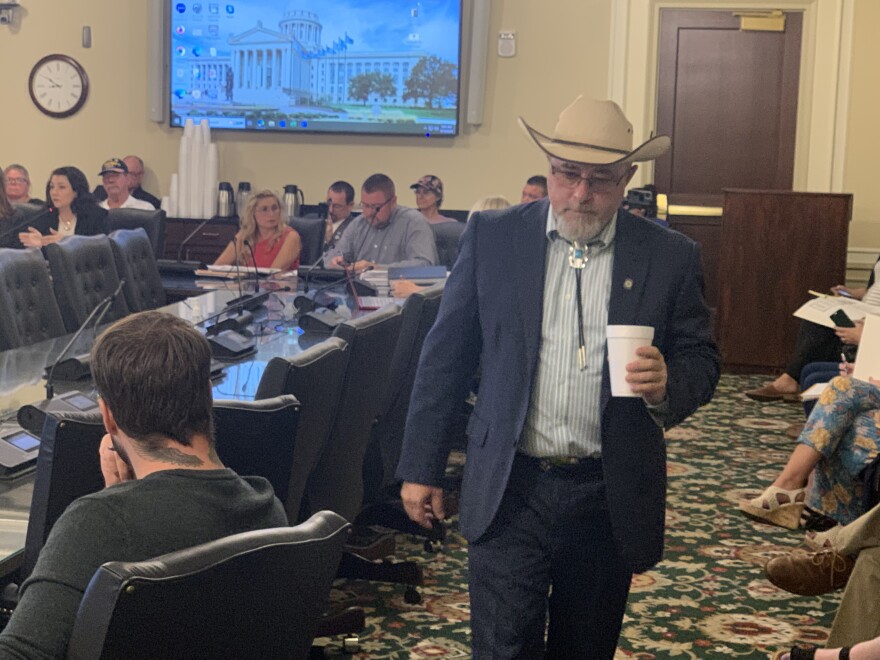A state committee has granted law enforcement leeway to investigate the Department of Human Services after a parent accused the agency of negligence in handling his son’s abuse report.
Stillwater parent Darrel Dougherty testified before the Oklahoma Legislature’s House Criminal Justice and Corrections Committee on Monday that DHS investigators covered up his son’s abuse while his son was in state custody. DHS staff said Dougherty complained too much and refused to investigate allegations.
Dougherty said the Oklahoma Commission on Children and Youth has told him they would like to look into his claims, but need an outside state agency to authorize them to do so if DHS doesn’t.
Committee chair and state Rep. Justin Humphrey (R-Lane) announced Monday he had done just that.
“I can’t sit by and do absolutely nothing. If this gets me in trouble, then I’ll be proud to get in trouble, for it’s a good cause to get in trouble on,” he said.
Humphrey said he isn’t trying to go after DHS, but rather trying to ensure accountability from the state agency.
Dougherty claims officials were evasive until former DHS director Deborah Shropshire resigned at the end of August.
"Because the investigation was going to be into the administration and legal staff of DHS, I believe she did not allow that investigation to move forward before she resigned,” Dougherty said.
Dougherty also claimed a DHS case worker illegally removed his son’s clothes during an investigation, and that the agency glossed over a credible sexual abuse report.
In response to the hearing Monday, a DHS spokesperson said her agency is “committed to protecting the safety and wellbeing of Oklahoma’s children.”
“Every child welfare case is different and the specific details in those cases impact decisions made by the agency, the courts, District Attorneys, and others who participate in any case,” the statement reads. “Additionally, child welfare cases are confidential by state and federal statutes, so we are unable to discuss the facts or circumstances of any child welfare case with anyone who is not authorized by statute or permitted by an order of the court.”



